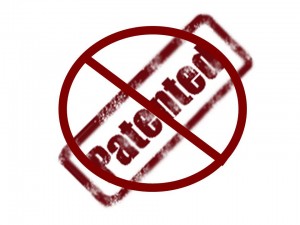At the last North American Biochar Symposium I gave an Ignite presentation called ‘Balancing the Hope & Hype of Biochar’. One of the subjects within the presentation was the influence of patents on the biochar markets. Quoting myself, I said: “Patents may lead to pay-dirt for a fortunate few, but they often create more hype than hope. And they can constrain more collaborative, creative solutioneering!” I stand by this statement more than ever especially given some of the shenanigans happening in the biochar world of late!
While I am not a complete detractor nor an expert in the realm of patents, I do believe the original intent of patents (i.e. allow individuals or companies to recoup funds invested in developing a product by providing a period of time in which others cannot pinch your technology) has morphed into a beast which often does more harm than good. There is a notion, or perhaps even an industry, known as ‘patent sitting’ or ‘patent trolls’ where someone or some company patents something so vague yet has no intention of ever taking the concept beyond the idea stage. Then these folks run around and claim anyone in the space must pay them a licensing fee. This is certainly not unique to biochar and has hurt companies large and small. Luckily President Obama is on the case. He was quoted as saying this about patent trolls “they don’t actually produce anything themselves, they’re just trying to essentially leverage and hijack somebody else’s idea and see if they can extort some money out of them.”
Patent sitting is happening in the biochar world, at least in the US. There is at least one patent that is so broad and vague that it seems to claim that the patent owners have the sole ownership of the very notion of biochar itself as well as any biochar producing technology. This is patently ridiculous. That is akin to trying to patent charcoal (kissing cousin of biochar). IF anyone should have the rights to that sort of patent it would be all the indigenous people around the world that have used charcoal/biochar/Terra Preta in soils for millennia.
Rumor has it that various biochar companies have been sent legal letters stating that they must pay up even when the production technologies and conditions, the feedstocks and the resulting biochars are wildly different. Redirecting the already scarce funds being spent on developing biochar markets and education to pay for lawyer’s fees or even licensing fees without merit is exactly the wrong direction for the biochar industry.
Extortion. The president’s words, not mine. But it’s hard to argue with that conclusion.
Will indigenous people using biochar be the next to be sued?


